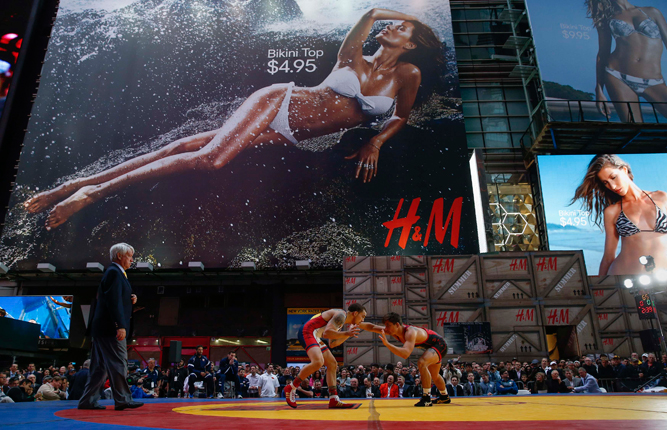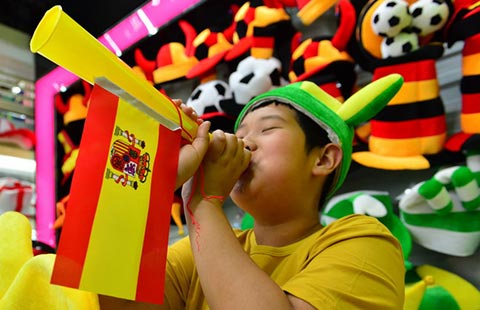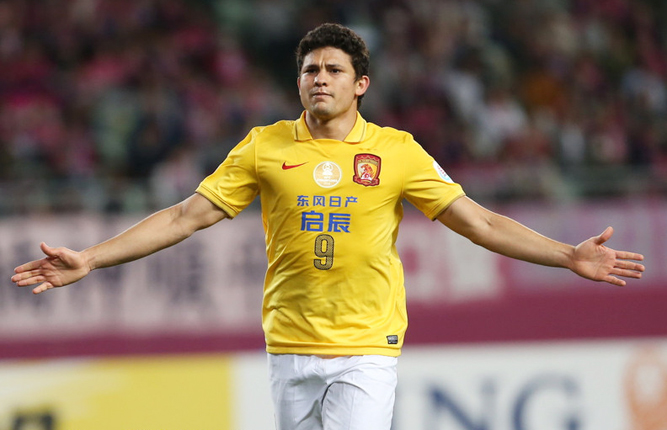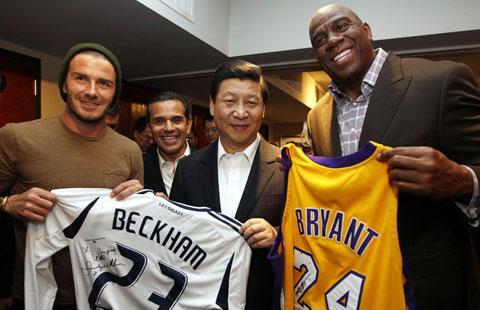Nanjing hopes Youth Olympics help nation's bid for Winter 2022
By Sun Xiaochen (China Daily) Updated: 2014-05-09 07:20
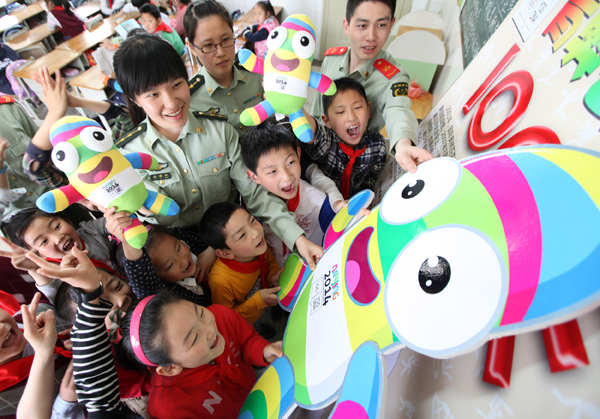 |
|
Students from Tianfeigong Elementary School make a collage of LeLe, the mascot of the 2014 Nanjing Youth Olympic Games, with guards from Nanjing Port to celebrate the 100-day countdown to the event on Thursday. Zhang Shanyu / for China Daily |
Hosting the Nanjing Youth Olympic Games in a festive yet frugal way will set a positive example while earning support for the joint bid of Beijing and Zhangjiakou to host the 2022 Winter Olympics, organizers said.
Despite concerns about excessive spending and potential inconvenience to the public, the organizing committee of the 2014 Nanjing Youth Olympic Games remains positive about the event's affect on the Winter Olympics bid.
"Whether the Nanjing Youth Olympics is successful will weigh a lot in the bidding process of the 2022 Winter Olympics," said Xiao Tian, vice-chairman of the Chinese Olympic Committee, at a news briefing on the preparations for the Youth Games on Thursday.
"The success in Nanjing will boost the confidence of the International Olympic Committee that China is always ready for staging international events. The Nanjing event's innovations in frugality and sustainability will impress the IOC and help the Winter Olympics bid," Xiao said.
In November, the IOC confirmed that Beijing and the nearby city of Zhangjiakou, Hebei province, will launch a joint bid to host the 2022 Winter Olympics, competing against cities like Almaty, Kazakhstan; Oslo, Norway; and Munich, Germany.
Yang Weize, executive chairman of the Nanjing committee, echoed Xiao's sentiments, saying Nanjing will set examples in economic preparation and post-event use of the facilities.
Still, the public has expressed doubts about the country's continual bidding for extravagant major international events, given that some previous events have been a waste of public resources.
China has proved its economic strength by staging the 2008 Beijing Summer Olympics, 2010 Guangzhou Asian Games and 2011 Shenzhen Universiade, but also saw new facilities like the giant permanent stadiums for the Guangzhou and Shenzhen events slide into disuse and disrepair.
"Does China really need so many big-spending events? Why not save the money for improving people's livelihoods and public welfare like healthcare and education?" a micro-blogger nicknamed "Yang MingmingAlex" posted on the Nanjing YOG topic on Thursday.
Some experts are already suggesting that local governments should proceed with caution toward holding more major sports events.
Lin Xianpeng, a sports industry professor at Beijing Sport University, said that the country's sports investment should be more in mass fitness programs rather than giant event infrastructures, which are difficult to operate commercially.
"It's time to shift the focus, and I doubt whether the public will feel as much enthusiasm as they did for the Beijing Olympics (in 2008). Compared to major events, we need more grassroots programs that would truly benefit people's well-being," Lin said.
To keep Nanjing's promise of frugal preparation and less public disruption, 26 competition venues and 12 training facilities will be in modified and renovated stadiums, and there will be only one new venue - the Youth Olympics Sports Park - for rugby, hockey and BMX for the Nanjing event.
The Nanjing organizing committee has cut its administrative spending to less than 3 percent of the overall budget and 2 percent of the labor cost, significantly lower than other sporting events of comparable scale, said Liu Yian, the committee's deputy executive secretary-general.
"Economy doesn't mean we are not willing to spend money, but instead, we will spend wisely," said Yang, the committee's executive chairman.
"The outcome of holding the Youth Olympic Games can't be assessed only by the input-output ratio. The rich heritage and international image will be a valuable treasure for the city of Nanjing."
Nanjing was elected as the host of the Second Youth Olympic Games in February 2010.
The youth gala event, which kicks off on Aug 16, will attract 3,808 athletes aged from 15 to 18 years old from 204 countries and regions to compete in 222 Olympic and non-Olympic categories. Various cultural exchange and education activities will be highlighted during the event.
sunxiaochen@chinadaily.com.cn
Related: Youth Games: Renewal in Nanjing

